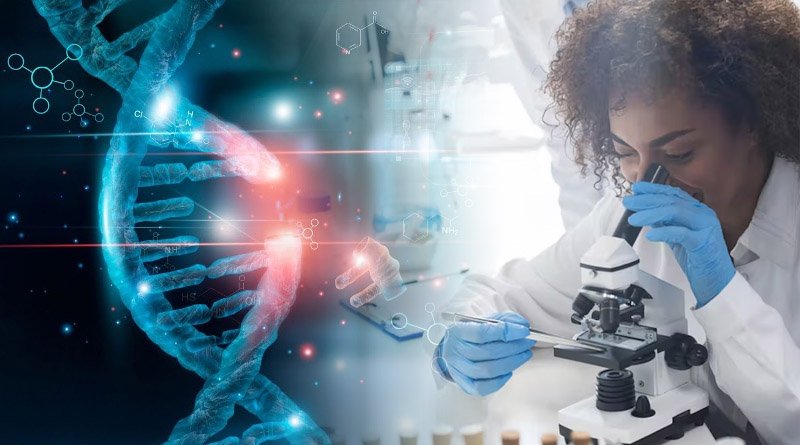The SFA Foundation is implementing DELTAS Africa II program to strengthen the African R&D ecosystem and boost the continent’s capacity for research.

The second phase of a multimillion dollar programme by the Science for Africa Foundation (SFA Foundation) to create world-class research and African scientific leaders has begun. Through the joint funding support of Wellcome and the UK’s Foreign, Commonwealth & Development Office (FCDO), the DELTAS Africa II program provides $70 million.
With partnerships and networks around the world, it funds 14 consortia in nine African nations to produce high-quality scientific data and information for deliberations based on the best available evidence. It also promotes the growth of a critical mass of highly effective research leaders on a global scale.
African governments have made R&D investments, but their share of global R&D is only 1.3%, compared to the global average of 1.4%–1.7%. In order to address the health issues that disproportionately affect the continent with the highest global disease burden, this lags behind the rest of the world.
In order to address the most urgent public health issues in Africa and generate data and evidence that informs policy and Africa’s development agenda, the DELTAS Africa program funds new scientific leaders.
With the inclusion of previously unsupported institutions in North Africa and the countries of the Lusophone region, Phase One has already illustrated the significance of science funding.
Top-tier African researchers are in charge of 14 programmes that are supported by DELTAS Africa II (2023–2026) in 75 institutions spread across 36 countries. The consortiums are aware of the links between food security, health, and climate change as well as the need to strike a balance between equity and research excellence.
The focus of DELTAS Africa II is on intra-African cooperation, engagement, and partnership between institutions with abundant and scarce resources. On important R&D priorities, the consortia led by Côte d’Ivoire, Ethiopia, Ghana, Kenya, Mali, Senegal, South Africa, Tunisia, and Zimbabwe are advancing knowledge and evidence.
The leaders will receive assistance in their efforts to advance scientific inquiry, practise, and policy as well as to promote scientific entrepreneurship and innovation across the continent. This will ensure that countries are prosperous and productive, which will speed up economic growth.
The African Academy of Sciences (AAS) and African Union Development Agency are implementing the five-year DELTAS Africa II programme, which is funded by Wellcome and FCDO (AUDA-NEPAD). The World Health Organization received advice from DELTAS Africa I (2015–2022) regarding rabies, and an affordable test for HIV drug resistance was developed.
Through the production of 1,496 peer-reviewed articles, competition for grants totaling $267 million, and winning of 339 awards for scientific excellence totaling $9.1 million, the program consortiums’ first phase increased Africa’s scientific quality and productivity.
The SFA Foundation is implementing DELTAS Africa II program to strengthen the African R&D ecosystem and boost the continent’s capacity for research.
In order to support top-notch, internationally renowned research, Wellcome is working with the SFA Foundation and other partners. Wellcome is dedicated to funding ambitious and innovative research that addresses urgent health challenges.
“In addition to providing funding for research, Wellcome and the UK government support the creation of international guidelines for grant due diligence, research management, open access to science, and facilitating public involvement in research.
According to Dr. Jordan Kyongo, Research & Innovation Adviser, British High Commission, Nairobi, “These components are a crucial part of strengthening the wider research ecosystem to enable partner countries to deliver sustainable economic growth in line with national and UK priorities.”
Dixon Chibanda, Professor of Psychiatry & Global Mental Health and Director of Friendship Bench, and Abdoulaye Djimde, CAMES Professor of Parasitology and Mycology, Malaria Research and Training Centre at the University of Science, Techniques and Technologies, have both expressed their support for DELTAS Africa II funding to increase the number of African experts in antimicrobial resistance and bring it to the forefront of African communities.
The DELTAS Africa funding, according to Bruce Hewitson and Adamu Addissie, is a once-in-a-lifetime chance to develop a continental infrastructure for cancer care research in Africa.
They will be able to use the funding to mentor and prepare the upcoming generation of African leaders in the field of cancer research. Furthermore, it will strengthen working relationships and expand capacity through critical experiential learning, particularly for researchers in their early careers.
The African Population and Health Research Center’s Executive Director, Catherine Kyobutungi, declared that CARTA2025 aims to collaborate with African universities to produce ECRs who work in settings that support high-quality research and conduct top-notch research to address common health and development issues in Africa.
DELTAS Africa II will keep bolstering African institutions to deliver top-notch research training and conducive environments for research. For the benefit of society and to advance the careers of African ECRs, CARTA research hubs will be established.